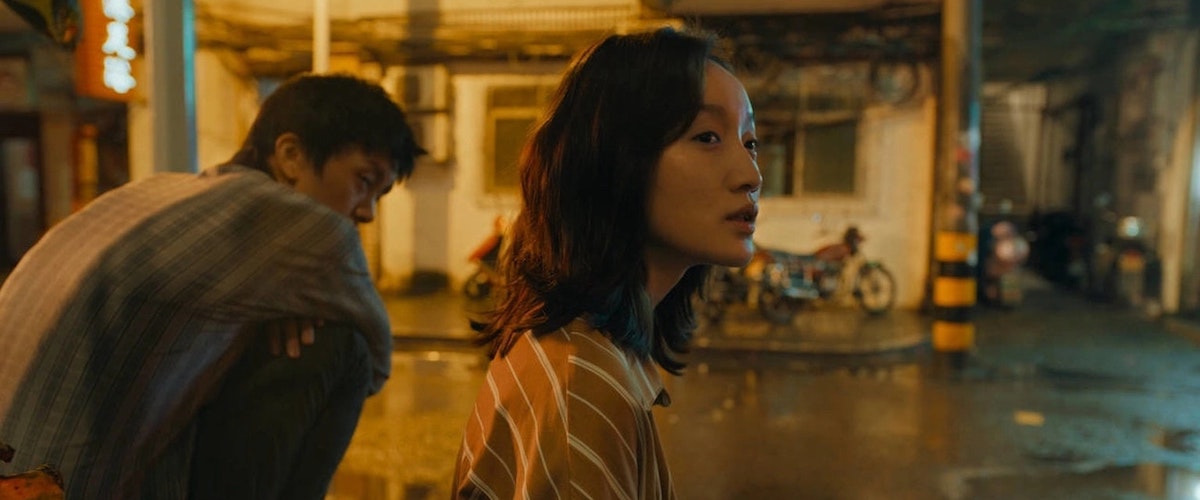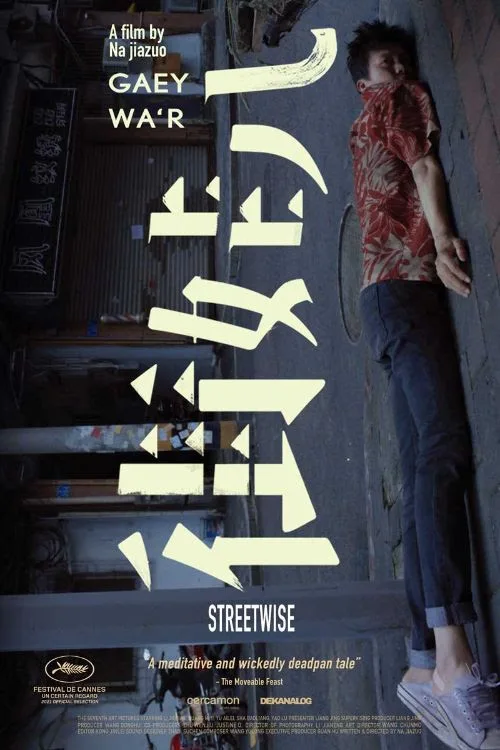Time stretches and snaps like a rubber band in “Streetwise,” an atmospheric Chinese neo-noir thriller about Dong Zi (Li Jiuxiao), a young enforcer for Xu Jun (Yu Ailei), a cut-throat Sichuan debt collector. Dong Zi does almost everything Xu Jun tells him to do, with the notable exception of staying away from Jiu’er (Huang Miyi), a standoffish tattoo parlor owner. Even Dong Zi’s deadbeat ex-gangster dad (Yao Lu) tells Dong Zi to avoid Jiu’er, and that guy’s not exactly an upstanding citizen.
The main problem with Jiu’er and Dong Zi is also a problem with time and how it passes for the lost, uncomfortably close antiheroes of “Streetwise.” Because Jiu’er was once the ex-wife of Mr. Four (Sha Baoliang), a powerful local mobster, who was previously mentored by Xu Jun, and he owes Four serious money. And while Dong Zi is mostly loyal to both his father and his boss, he also can’t fully repay his two dads. So time moves at its own pace in “Streetwise,” though it doesn’t move naturalistically or in “real time.”
Writer/director Na Jiazuo arranges objects—and people, and places, and vehicles—with a keen eye for visual compositions, even when the people on-screen are only shuffling down alleyways and shooing away bored sex workers (“Want some fun?” “Have your own fun!”). Na also often cuts mercilessly from one scene to the next, leaving viewers to adjust their points of view as his drama frequently shifts its focus without ever really progressing. A sudden, anticlimactic ending feels simultaneously like too much and too little, which also seems weirdly fitting. “Streetwise” evaporates with its characters, who can’t picture the world beyond their riverside home.
“Streetwise” is not a slow movie, but it does move unhurriedly, and so do its doomed protagonists. They circle around and bump into each other but never really try to escape. What if you were simultaneously too comfortable and hemmed in by the people and the relationships that are obviously holding you back?
Dong Zi tends to be the focus of Na’s movie, but his problems are only symptomatic of his seedy, enchanting, isolated environment. Because Dong Zi’s father is the same kind of hustler as Xu Jun, albeit more slovenly and less motivated, and Xu Jun’s cut from the same cloth as Four, his abusive, faux-benevolent former pupil. So it stands to reason that Dong Zi can’t leave Jiu’er alone. She’s also stuck in place, but can’t bring herself to flee or take up more space. Dong Zi and Jiu’er aren’t happy together, but they do recognize themselves in each other.
Time moves deliberately, and its passage is eulogized through Na’s precise framing and hard cuts, the combination of which can sometimes feel jarring, like getting repeatedly splashed with ice water on a clammy day. Ambient noise on the soundtrack also reminds viewers of how lived-in and genuine this beautiful, melancholic hangout movie often feels.
“Streetwise” is one of a handful of recent mainland Chinese neo-noirs, a micro-trend that includes such recent standouts as the sweaty animated 2017 heist comedy “Have a Nice Day” and the neon-drenched 2019 crime drama “The Wild Goose Lake.” Na’s movie does not, however, feel like more of the same, despite some shared generic points of contact. Rather, “Streetwise” reflects its characters’ peculiar acceptance of lives that even they don’t believe they’ve chosen for themselves.
Like many great noir characters, Dong Xi and his fellow Sichuan residents are trapped by designs that they’re only so on top of. They’re not big fish in a small pond, but rather medium-sized fish in a shallow and slowly draining pool. As they circle the drain together, they recognize the beauty and strangeness of the circumstances that have brought them together. This place, these people, this life, it all feels so easy and familiar. How could it ever really end?
“Streetwise” isn’t the kind of movie you watch for the plot, which is mostly incidental. This is a small-scale drama whose emotions often feel overwhelming, though never bombastic and rarely familiar. Because while it is a film noir at heart, “Streetwise” is also very much about people who live in perpetual hope and denial. It’s a cynical movie, but it’s also gorgeous and morbidly funny.
Na packs so many rich details into every camera frame that it’s easy to overlook how time runs differently in “Streetwise,” even when the camera is hand-held or moving. He encourages viewers to loiter with his characters for longer than most of his contemporaries might, but Na also keeps “Streetwise” moving with an assured pace and a rhythm that’s both mysterious and assured. It’s just over 90 minutes long, but “Streetwise” still feels like an epic poem, shrunken down and sparingly polished for maximum effect.
Now playing in theaters.




















